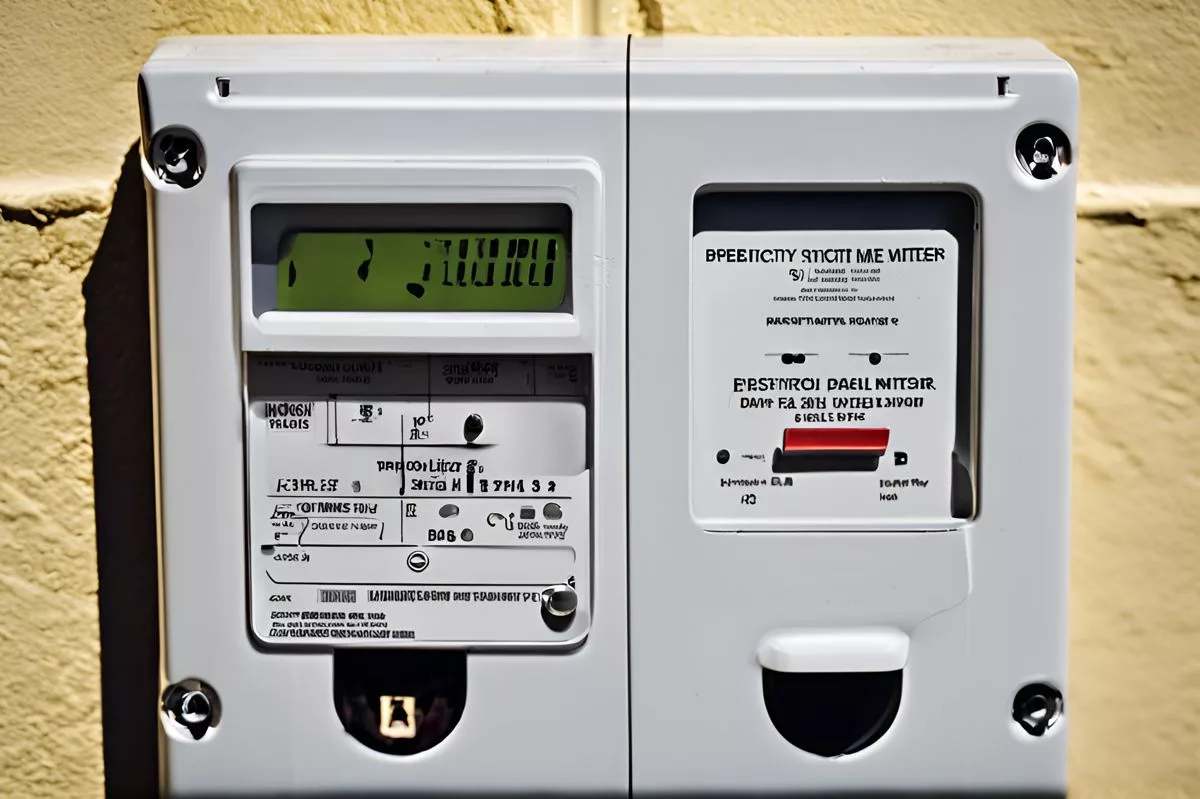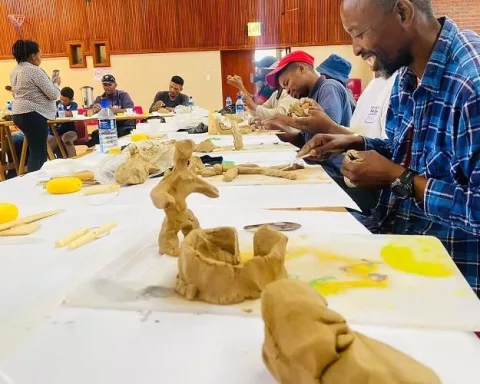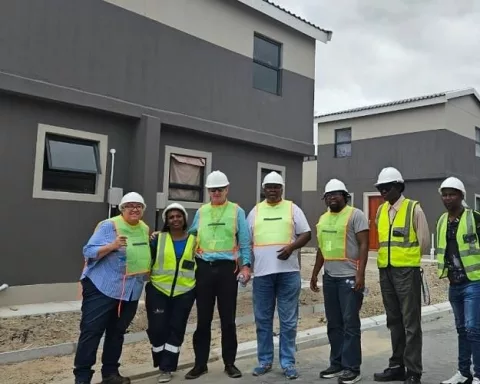Leo Mews Flats in Elsies River is a shining example of a community coming together for a better future. New prepaid electricity meters are being installed, giving residents more control over their energy use and helping them manage their bills. This upgrade not only makes life easier but also supports those who qualify for discounted rates and free basic electricity. With this project, the City shows its commitment to improving public housing and empowering residents, turning Leo Mews into a beacon of hope and progress for all.
What are the benefits of installing new prepaid electricity meters at Leo Mews Flats?
The installation of new prepaid electricity meters at Leo Mews Flats offers several benefits, including:
- Accurate utility readings for better expense management
- Empowerment of residents through improved control over electricity usage
- Eligibility for the Lifeline Tariff, which provides subsidized rates and Free Basic Electricity (FBE) for qualified tenants
- Enhanced living conditions and community resilience
Revitalizing Public Housing in Elsies River
Elsies River, a vibrant neighborhood bustling with life, is home to the Leo Mews flats, a shining example of the City’s dedication to maintaining public housing. The City’s Human Settlements teams have embarked on a project to install new prepaid electricity meters in these affordable rental units, reflecting a steadfast commitment to improving residents’ living conditions and providing them with greater control over their utilities.
The history of these residences is rich, dating back several years when they were initially built to offer affordable housing solutions. Contractors originally installed private electricity prepaid and credit meters, making them responsible for infrastructure maintenance. With the passage of time, however, these meters became unreliable, causing daily challenges for residents who depended on them for accurate utility management.
The City’s decision to replace these outdated meters marks a significant turning point for the Leo Mews community. Installing 125 new prepaid meters represents more than just a technical update; it signifies a move toward modernized utility access. This transition embodies both technological progress and a philosophical shift toward empowering the residents themselves.
Community Impact and Technological Advancements
City officials, including Councillor Carl Pophaim, the Mayoral Committee Member for Human Settlements, have shown great enthusiasm for this project. They emphasize the importance of the Human Settlements Directorate’s efforts to support the City’s most vulnerable populations. This initiative is not an isolated endeavor but rather part of a comprehensive strategy that includes providing title deeds, ongoing maintenance, and essential upgrades. By working alongside diverse stakeholders, the City exemplifies a collaborative approach to sustainable urban development.
The new prepaid meters introduce numerous advantages for the residents of Leo Mews. Unlike the older models, these meters deliver precise readings, allowing residents to monitor their electricity usage with accuracy. Such transparency empowers residents to manage their electricity expenses more effectively. Additionally, eligible tenants can switch to the Lifeline Tariff, a highly subsidized rate that includes Free Basic Electricity (FBE), thereby easing their financial burdens.
Overcoming Challenges and Celebrating Resilience
Historically, public housing projects have mirrored the evolving dynamics between citizens and government. The post-World War II period, for instance, witnessed a surge in global public housing initiatives designed to address urbanization challenges and promote equitable living conditions. The Leo Mews project resonates with this legacy, integrating modern solutions to meet today’s needs.
Implementing the new meters at Leo Mews presented notable challenges. Coordinating the replacement process in a densely populated residential area required careful planning. The City, in collaboration with contractors and local partners, overcame logistical hurdles to minimize disruptions for residents. This collaborative effort highlights the critical role of community engagement in executing successful public projects.
Residents’ personal stories bring the project’s impact to life. Many tenants expressed relief at the prospect of receiving accurate bills, which alleviates the stress associated with unpredictable utility costs. Others shared how the funds saved from lower electricity expenses are redirected toward essential household needs, demonstrating the extensive, positive ripple effects of what might appear to be a simple technical upgrade.
A Beacon of Progress in Urban Development
The transformation of Leo Mews extends beyond mere functionality, as the project also respects and enhances the aesthetic value of the flats. The blend of practical design and modern consumer technology reflects a unique architectural ethos. This harmonious balance between form and function is part of a broader narrative of urban renewal, creating spaces that are both beautiful and livable.
Leo Mews stands at the intersection of technology, policy, and community, embodying the evolution of public housing to better serve its residents. As cities around the world face similar challenges, the lessons learned from Leo Mews provide valuable insights into modern urban living.
This initiative aligns with ongoing global movements toward sustainable urbanization. As cities strive to lower carbon footprints, efficient energy management becomes a vital component of urban planning. The transition to prepaid meters at Leo Mews supports this objective, encouraging responsible energy consumption and setting a precedent for future endeavors.
The project at Leo Mews transcends a straightforward infrastructure upgrade. It symbolizes a holistic commitment to social equity, technological innovation, and community well-being. As the City continues its efforts, the Leo Mews flats stand as a beacon of hope and progress, epitomizing the spirit of a resilient and inclusive urban future.
By investing in such initiatives, the City not only improves the immediate living conditions for its residents but also lays the groundwork for a better tomorrow. The story of Leo Mews is a testament to what can be achieved when communities and governments work together toward a shared vision of prosperity and sustainability.
FAQ about Leo Mews Flats
What are the benefits of installing new prepaid electricity meters at Leo Mews Flats?
The installation of new prepaid electricity meters at Leo Mews Flats provides several advantages, such as:
– Accurate utility readings for better expense management.
– Empowerment of residents through improved control over electricity usage.
– Eligibility for the Lifeline Tariff, which offers subsidized rates and Free Basic Electricity for qualified tenants.
– Enhanced living conditions and community resilience.
How does the Lifeline Tariff work for eligible tenants?
The Lifeline Tariff is a special rate designed to assist low-income households. Eligible tenants at Leo Mews Flats can apply for this tariff, which provides them with subsidized electricity rates and access to Free Basic Electricity (FBE). This initiative aims to alleviate financial strain on residents by making electricity more affordable.
What prompted the City to replace the outdated electricity meters at Leo Mews?
The decision to replace the outdated electricity meters was made to address the reliability issues residents faced with the older systems. Over time, the previous meters had become unreliable, leading to inaccurate utility management and billing challenges. By installing new prepaid meters, the City aims to enhance residents’ living conditions and provide them with better control over their utilities.
How will the new prepaid meters impact residents’ utility management?
The new prepaid meters provide precise readings, allowing residents to accurately monitor their electricity usage. This level of transparency empowers residents to manage their electricity expenses more effectively, reducing the stress associated with unpredictable utility costs. Many residents have already expressed relief at the prospect of receiving accurate bills.
What challenges did the City face during the implementation of the new meters?
Implementing the new meters in a densely populated residential area like Leo Mews required careful planning and coordination. The City, along with contractors and local partners, faced logistical hurdles but overcame them to minimize disruptions for residents. This collaborative effort exemplifies the importance of community engagement in successfully executing public projects.
How does the Leo Mews project contribute to urban renewal and community well-being?
The Leo Mews project represents more than just a technical upgrade; it signifies a holistic commitment to social equity, technological innovation, and community well-being. By investing in modern utility infrastructure, the City not only improves the immediate living conditions for residents but also lays the groundwork for a sustainable urban future. The project serves as a beacon of hope and progress, demonstrating the positive outcomes that can arise when communities and governments collaborate toward a shared vision.












